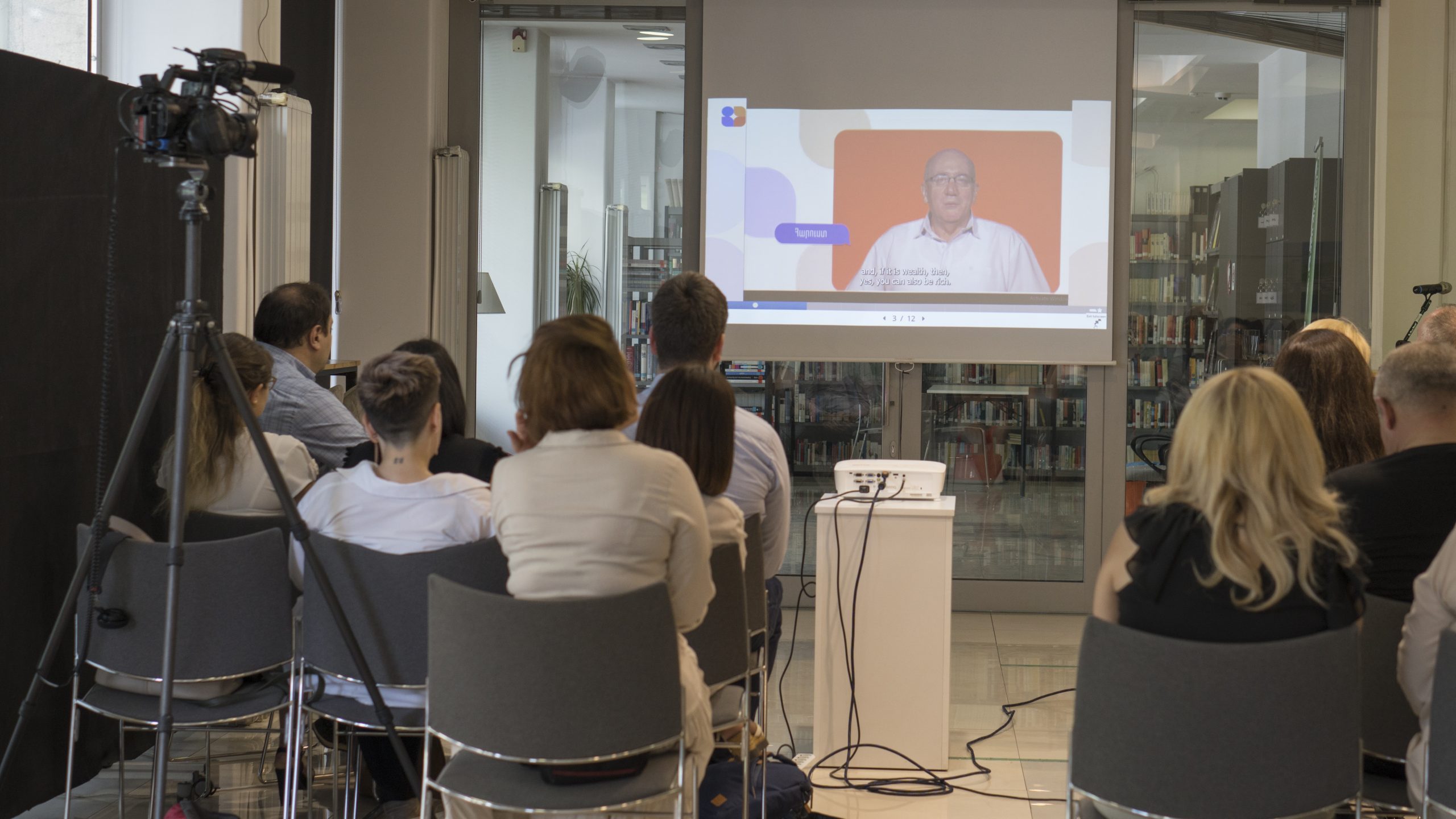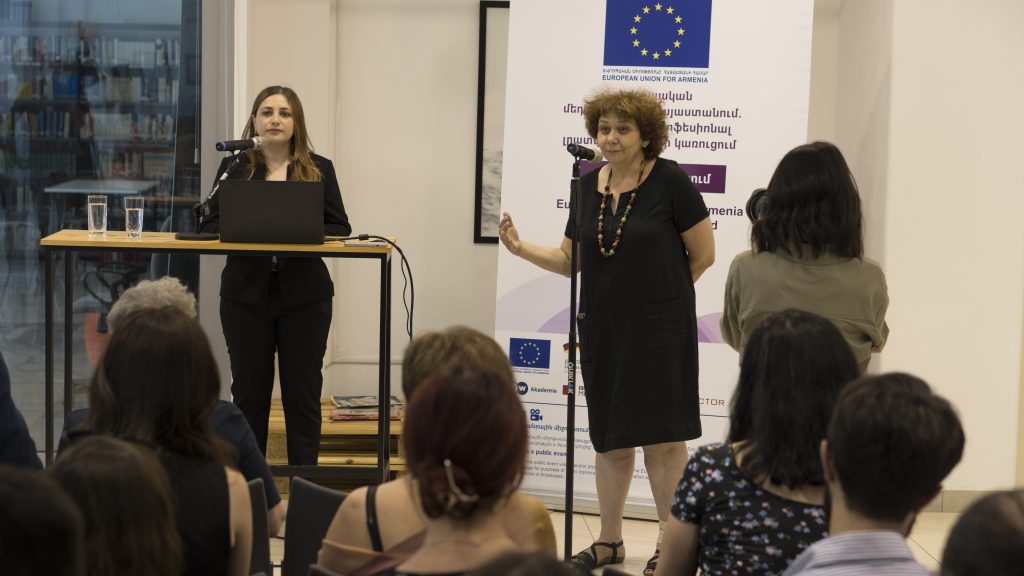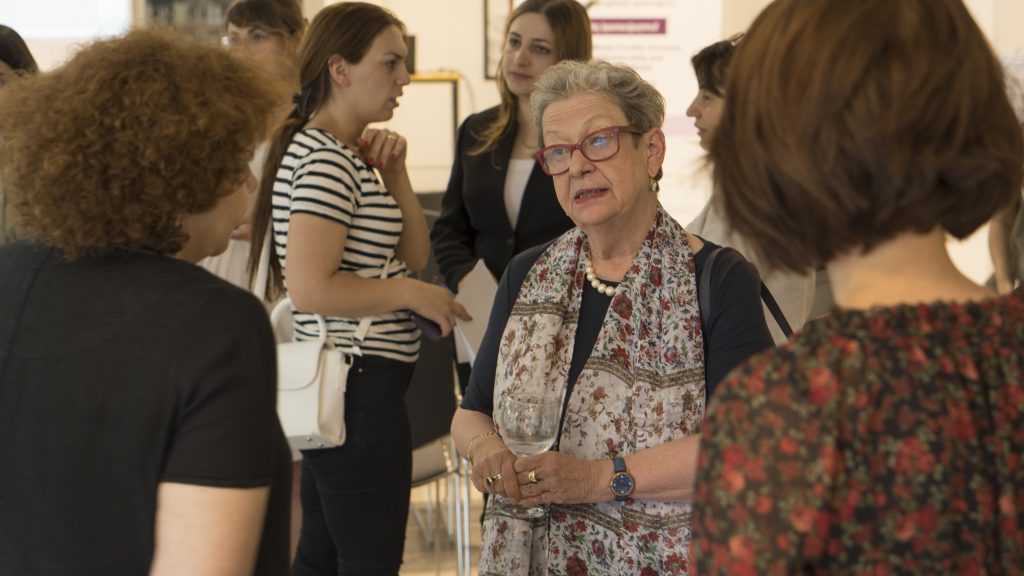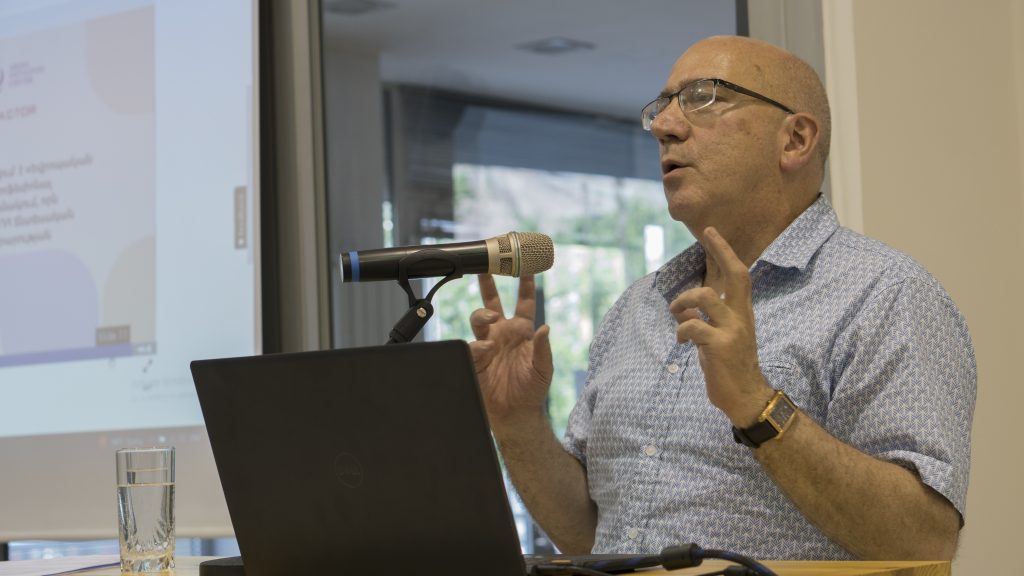
More than 25 years have passed since the Media Initiatives Center (MIC, then Internews Armenia) organized the first course in the field of media management. At that time, a number of mass media, television, and radio stations were just in the process of establishing their channels. Two and a half decades is quite a long time in the media sector, during which there have been many changes and innovations. The creators of the media management school program tried to respond to those changes.
On July 1, MIC and the Deutsche Welle Academy presented the curriculum of the Online School of Media Management.
The first school has already started: According to the program, by the spring of 2023, it is planned to have 3 schools with 20 participants each.
Local challenges in media management
The representatives of the news field, in particular the members of the management staff, regularly address their problems, shortcomings in media management, and the issues of coping with the created situations. For example, how to find financial resources, how to involve readers in their creation, how to increase visibility and increase public trust towards them, etc.
The creation of an online school aims to solve existing challenges with modern knowledge and tools.

“It is with pain that I have to note that our managers are, first of all, crisis managers, and there is no time and opportunity for them to actually become development managers. It has taught us and our colleagues how to have a media outlet in unprecedented times with zero resources. But the goal of our school is to make all of us development managers and find new opportunities,” said Nouneh Sarkissian, executive director of MIC.
Ambassador Andrea Wiktorin, the head of the EU delegation in Armenia, also spoke about the challenges, stressing that the importance of freedom of speech and media for the European Union lies at the basis of supporting the establishment of the school.
“Now Armenia is in the process of democratization. It faces a number of challenges and needs a free, transparent, and fair media sector. It is more than important now to have reliable, investigative media to help people fact-check and seek correct information. We want governance capabilities to focus on durability, strength, flexibility, and transparency,” the ambassador said.

In unstable political and economic conditions, the media sector can be very sensitive, facing various crisis situations. The executive director of the Deutsche Welle Academy, Carsten Von Nahmen, addressed them, “Traditional media and its business models are under threat, which is facilitated by social media and socio-economic crises. In addition to these, there are problems with the physical safety of journalists all over the world, even murders. Therefore, we must unite those who share the idea of creating a better society through unity.”
According to Narine Safaryan, the coordinator of the online school of media management, before developing the educational program, we met with media managers and studied recent research done on the Armenian media. As a result, the following issues were raised:
- Lack of (financial) stability
- Lack of trust in the media
- Lack of flexibility to change
- Lack of resources and different business approaches
- Shrinking advertising market
- Lack of professionals
- Lack of content with unique, attractive packaging for readers
- Independence from social networks
Four modules have been developed to solve the problems:
- Strategic planning
- Marketing
- Digital development strategy
- Finance management
School participants and teachers
There were 40 applications to the first school, of which 20 participants were selected. They are people involved in various fields of media management: producers, editors, heads of various departments, and idea bearers of new media creation.
Online Media Management School Class
The instructors are experienced specialists in marketing, financial management, communication, and information technology, who are related to the media. They also underwent special training using the online learning methodology of the Deutsche Welle Academy.
In addition to weekly classes, extra meetings with speakers and guests from Armenia and abroad are also being organized within the school.

One of the teachers is Aravot newspaper editor Aram Abrahamyan, who shares his 28-year experience in media management with students. “My duty in this school is to talk about the structure of the editorial office, ethical issues that constantly arise in the conflict between making money and remaining ethically clean.”
The school is being held within the framework of the “European media platform in Armenia: building reliable and professional media” project, which is implemented with the financial support of the European Union and the Ministry of Economic Cooperation and Development of the GDR.
Christian Ginosyan
Photos by Hakob Hovhannisyan


Add new comment
Comments by Media.am readers become public after moderation. We urge our readers not to leave anonymous comments. It’s always nice to know with whom one is speaking.
We do not publish comments that contain profanities, non-normative lexicon, personal attacks or threats. We do not publish comments that spread hate.